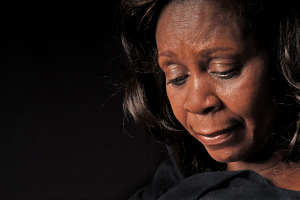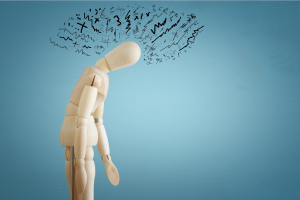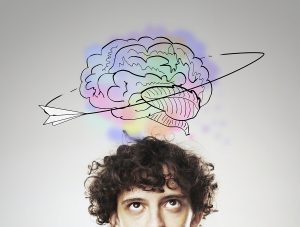The Trauma of Racism
 In the United States, black people are almost guaranteed to be born into a life of trauma. It is a trauma informed by a long history of brutal inhumanity, repression, violence, and injustice that continues to firmly grip black men and women each and every day. This trauma is not something any of us who have not had the experience of being black in America can speak to in the same way as someone who has. Yet, acknowledging this trauma and casting it in a broad, unflickering light is all of our responsibility.
In the United States, black people are almost guaranteed to be born into a life of trauma. It is a trauma informed by a long history of brutal inhumanity, repression, violence, and injustice that continues to firmly grip black men and women each and every day. This trauma is not something any of us who have not had the experience of being black in America can speak to in the same way as someone who has. Yet, acknowledging this trauma and casting it in a broad, unflickering light is all of our responsibility.
Countless studies have shown the adverse physical and psychological effects of racism. “Racism is considered a fundamental cause of adverse health outcomes for racial/ethnic minorities and racial/ethnic inequities in health,” according to a 2019 review of Racism and Health. The experience of individual, institutional, and cultural racism have been found to be uniquely predictive of posttraumatic stress symptoms.
Racial trauma can involve a “negative, sudden, and uncontrollable experience or crisis.” Alternately, it can involve an “ongoing physical or psychological threat that produces feelings of fear, anxiety, depression, helplessness, and post-traumatic stress disorder (PTSD).” When you witness the kind of grotesque violence against a man like George Floyd, knowing that this could happen to you or someone close to you simply based on your skin color, how can you not feel threatened, afraid, anxious, depressed, helpless?
Yet, as we all know, for many African Americans this trauma didn’t start with George Floyd. Trauma, in general, can be defined as any significant negative event or incident that shaped us and can emerge from any impactful instance that made us feel bad, scared, hurt or ashamed. “Acts of aggression are not only examples of interpersonal trauma but also the trauma of racism, which is examined through the lens of intergenerational trauma, racist incident–based trauma, and complex trauma,” wrote researchers from Pepperdine University.
A black child does not even have to directly experience racism to undergo trauma. A 2017 systematic review of 30 studies looked at how children’s health can be affected by indirectly-experienced racism. Researchers concluded that “socioemotional and mental health outcomes were most commonly reported with statistically significant associations with vicarious racism.” Families living in racially and economically segregated communities must also cope with the effects of historical trauma and intergenerational racism, according to The National Child Traumatic Stress Network. Additionally, they face specific barriers to obtaining needed services.
Another study that looked at how exposure to racism and other Adverse Childhood Experiences affected perinatal women with moderate to severe mental illness, found that “black women were significantly more likely to report conventional and expanded ACEs including experiencing racism and witnessing violence.” The study concluded that “childhood exposure to racism and environmental trauma are important risk categories for perinatal mental illness.”
Research on the impact of ACEs has left no doubt that early trauma, especially unresolved trauma, impacts the development of emotional regulation skills and distress tolerance. It can lead to “disrupted neurodevelopment and social, emotional and cognitive impairment.” ACEs have further been linked with all the leading causes of death, including illnesses such as heart disease, stroke, obesity, diabetes, and cancer, in addition to mental health concerns like depression, anxiety, substance abuse, and suicide.
The physical and emotional wounds of racial trauma can be reopened throughout one’s lifetime. It’s a trauma reawakened when a person is afraid to walk down the street or is pulled over by the police. It is a trauma reignited by disturbing videos of violence and tragedies like the murder of George Floyd. These events can be triggering on a level that is both deeply personal and broadly shared.
Healing from this kind of trauma must occur on a societal and individual level. Part of overcoming trauma is processing what happened to us, feeling the full pain of it and making sense of the experience. For many black Americans, the experiences they’re trying to process can be ongoing, complex, and utterly senseless. This makes it all the more crucial that we find pathways to provide mental health services in the wake of trauma. Unfortunately, although black men are exposed to trauma at an alarming rate, findings have suggested that “56-74% of those exposed to traumatic events may have an unmet need for mental health services.” The question we must ask ourselves in addition to social change is what can be done to start to address the mental health needs of this community?
For those impacted by the trauma of racism, healing can come from counseling, spirituality, seeking justice, and social support. Racial socialization messages emphasizing cultural pride have also been found to moderate the relationship between racism and posttrauma reactions. Yet, we must ensure access to such resources are available. One effort we made in our hometown of Santa Barbara was to create a volunteer-led Response Network that provides psychological first aid and mental health services after a crisis. At this point in time, all of us in the mental health community should call on one another to increase our efforts to address the trauma that so many people are enduring.
Perhaps what we should marvel at in this moment is not that people have been thrust into action, taking to the streets in protest, but that people imbued with this much trauma have learned to tuck it away for so long, to carry on each day despite its mental and physical toll. Any help we offer or action we take should include a fuller understanding and acknowledgment of this trauma. It is on all of us to refuse to allow this subject to fall back in the shadows, to keep that light shining and never allow it to go dark again.
Tags: race, racism, trauma3 Comments
Comments are closed.










I could write an entire page on how awe-inspiring it was to read your article. The fact that it was even written at all makes my heart leap. As an African American woman, I feel not only relieved but a feeling of disbelief about all of these recent events. In one regard, I’m terrified that someone will get hurt defending what we’ve been fighting all along, and then they’ll stop helping altogether. In another way, I can hardly believe the outpouring of support from so many people of other ethnic, racial, and cultural backgrounds. We, as a world community, NEED these types of initiatives not only for the black communities benefit but for the benefit of the world. Pain and suffering know no color, but we have most certainly endured many disturbing & disguised tragedies on the world stage, all with little acknowledgment for the pain and desolation it has caused us all. My heart aches at the long-standing pain I can see oozing from my people after generations of systematic gaslighting. It feels like being told by a magician, ”abracadabra, you’re now invisible” just to find out the entire audience was in on the joke. We hardly grieve correctly if at all because there’s so much to lament that our pain becomes all-consuming to the point of numbness… Trauma is a severe issue. One, we need the skills and assistance to address head-on. Although I don’t live in your community, reading that someone somewhere who looks like me is receiving help gives me a sense of peace and happiness. I genuinely hope that all this change we’re seeing is here to stay and not just the newest fad or an opportunity for grandstanding.
“I genuinely hope that all this change we’re seeing is here to stay and not just the newest fad or an opportunity for grandstanding.”
I feel the same way. It has been quite something seeing so much widespread support. I have noticed how I naturally take it with a grain of salt though,as a way to protect myself emotionally.
There is nothing legitimate about the mainstream kosher narrative of muh racism and the anti-European bias it entails. The entire world is not the Antebellum South in a 40 year period or whatever.